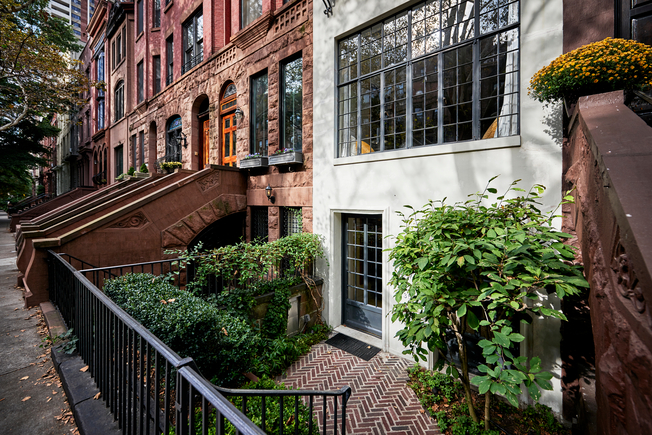
What is a Building Superintendent and What Do They Do?

By Lilly Milman
Sep 25, 2024
While browsing apartments in NYC, one amenity or benefit you may see listed time and time again is a “live-in super.” This is referring to a building superintendent — a term not used as much around the rest of the country, but incredibly popular in New York City. In this article, we go through what a building superintendent is, why they’re beneficial to have in your building, and more.
What is a building superintendent?
A building superintendent, often shortened to just a building “super,” is like a property manager and handyman wrapped into one role. The deal with tenants’ immediate needs and, in a large enough building, will usually live in a unit in the building to be accessible 24/7. A super will often live in a ground-floor or basement-level unit in the building for either a free or reduced rent price.
What’s the difference between a super and a landlord?
A building super does not own a building or apartment, while a landlord does. A super is hired by a landlord, co-op board, condo association, HOA, or property management company to manage the day-to-day of a particular building. They are the first person a tenant should turn to in case of a question or issue with the building. In many states, a “super” is more likely to be called a property manager or resident manager — but in New York, the term “super” or “superintendent” is most common.
What does a building superintendent do?
Because a building superintendent is the first line of communication for tenants and property owners, they have a lot of responsibilities — but a superintendent job description will depend on the size of the building that they are managing. Below, we list out what you can expect from your building’s super.
Maintenance: A building super handles two kinds of maintenance: unit maintenance and building maintenance. So, if your building has a super, you’d be just as likely to reach out to them about a plumbing issue in your apartment as you would about a hallway lightbulb needed to be replaced. They are responsible for ensuring that the entire building is in good, livable condition as well as each individual unit by doing regular inspections. In a very large building, they may hire additional maintenance staff, while in a smaller building, they may be doing all minor repairs and routine maintenance tasks on their own.
Building cleaning: Part of a residential building’s generalmaintenance and upkeep is related to its cleanliness. A super will take on janitorial duties for the building, whether that means hiring a cleaning crew or doing the cleaning themselves. If you have a super for your building, you may see them sweeping up common areas like the halls or the elevators or salting the front steps after a snowstorm. In a small building, they may also be the one cleaning a unit out after a tenant moves out.
Communicating with tenants and owners: Your building’s super is the first person you’ll contact when you have a question about your apartment or your building in most cases as a renter. The same goes for if you are an owner of an apartment in a building with a super. They are effective the first point of contact on all building matters, so one of their responsibilities is being available for communications and being able to answer questions about the building.
Financial management of property: A superintendent may be responsible for handling the building’s budget — though the size of this budget will depend on the size of the building. In a smaller building with fewer amenities, there will be a smaller budget, mostly covering routine and necessary maintenance. In a larger building, the budget will be larger and likely involve multiple vendors and outside contractors to keep amenities up and running.
Record keeping: As a tenant, it’s important to keep records of all communications with building management. The same goes for owners. A super will be in charge of recording all communication that occurs with tenants, owners, and vendors. This includes any financial transactions, conversations regarding tenancy or maintenance, complaints, contact information, and more.
Staff supervision: Depending on the size of a building, there may or may not be a staff devoted to its operations. In a small building, the super will likely be one of the only staff members. However, in a larger building, there may be a maintenance crew, a cleaning crew, or a doorman, to name a few options. In this case, a super will oversee the team and manage them.
What are New York City’s laws around building superintendents?
In New York City, where you will see the term “super” used most often, there is a law requiring every building with 10 or more units to have a live-in superintendent or a superintendent who lives within a block (or 200 feet) of the building. They also need to be a full-time employee of the building, available to tenants 24/7.
What are the benefits of a live-in super?
If a building has a live-in super, it’s considered an amenity because it means that there will be someone on-staff available to handle maintenance requests, answer building questions, and field complaints for residents at all hours of the day. If you do need something small fixed in your unit, there’s a good chance that a live-in super will be able to address it much faster than a maintenance person who needs to be called or scheduled to come in advance. Plus, if your landlord does not live nearby or is not always available, a live-in super can help offset some of the negatives of not being able to easily communicate with them.
The Bottom Line
A superintendent, or “super,” is effectively a property manager who will also oversee maintenance, janitorial duties, many financial responsibilities, record-keeping, and building staff in an apartment building or complex. They are common in New York City, where buildings are required to have them on-site or within a block of a building 24 hours a day if the building has over 10 units.
Top cities
Atlanta Apartments
1,595 apartments starting at $700/month
Austin Apartments
5,074 apartments starting at $500/month
Baltimore Apartments
1,305 apartments starting at $475/month
Boston Apartments
5,622 apartments starting at $1,050/month
Charlotte Apartments
2,837 apartments starting at $560/month
Chicago Apartments
6,256 apartments starting at $638/month
Dallas Apartments
5,511 apartments starting at $595/month
Fort Worth Apartments
2,626 apartments starting at $500/month
Houston Apartments
5,239 apartments starting at $618/month
Las Vegas Apartments
1,067 apartments starting at $650/month
Los Angeles Apartments
11,096 apartments starting at $700/month
Miami Apartments
462 apartments starting at $1,200/month
Milwaukee Apartments
1,180 apartments starting at $545/month
New York Apartments
5,073 apartments starting at $1,000/month
Oakland Apartments
788 apartments starting at $850/month
Orlando Apartments
853 apartments starting at $940/month
Philadelphia Apartments
3,084 apartments starting at $500/month
Phoenix Apartments
4,126 apartments starting at $600/month
Pittsburgh Apartments
753 apartments starting at $450/month
Portland Apartments
2,124 apartments starting at $750/month
Raleigh Apartments
1,229 apartments starting at $550/month
San Antonio Apartments
3,479 apartments starting at $574/month
San Diego Apartments
2,866 apartments starting at $650/month
San Francisco Apartments
496 apartments starting at $830/month
San Jose Apartments
431 apartments starting at $1,100/month
Seattle Apartments
3,096 apartments starting at $650/month
Tampa Apartments
807 apartments starting at $812/month
Washington DC Apartments
2,212 apartments starting at $910/month


